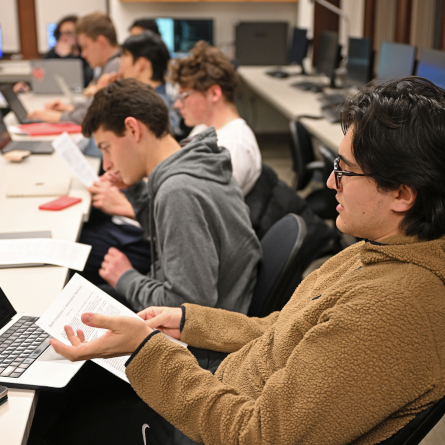
Shelley Taylor ’68 elected to exclusive American Philosophical Society
When Benjamin Franklin founded the American Philosophical Society in Philadelphia 275 years ago, Shelley Taylor ’68 was exactly the type of intellectual leader he intended to attract.
Taylor, who has built a distinguished career in psychology as a professor, researcher and prolific author, was elected as one of the APS’s newest members in April. She shares this honor with some of the most iconic intellectual figures in American history, including Thomas Jefferson, John Adams, Alexander Hamilton and Thomas Edison.
The founding principal of the APS—which continues to be its driving force to this day—was to create a scholarly organization that promotes research, dialogue and exploration in the sciences and humanities through original publications, grants, interdisciplinary projects, world-renowned library resources and community outreach initiatives.
Taylor called her election to the APS "a complete surprise."
"I am very honored," she said. "Benjamin Franklin has always been a hero of mine. In eighth grade, we were assigned to read and write a book report on an autobiography. I picked Ben Franklin's, which I remember as both inspirational and really long."
Taylor’s contributions to the fields of social psychology and health psychology are legendary among her peers. She has been particularly instrumental in establishing health psychology as a specialized area.
This work has led to a number of groundbreaking theories and models in the areas of social psychology and health psychology over the past few decades, most notably the “Tend and Befriend” behavioral model, which refers to behavior among women when they’re under threat. The theory suggests that women (and other female animals) have developed an evolutionary response to threats that diverges from the typical male response of “Fight or Flight.” Tend and Befriend refers to the tendency of women to first tend to their offspring in threatening situations, and then seek support in numbers from their community.
Taylor’s interest in psychology took flight during her time at Connecticut College. She was initially leaning toward majoring in history, but her professor in an introductory psychology course recognized her talents and encouraged her to pursue psychology instead—advice Taylor followed, reluctantly at first.
Her early research projects examined the behavior and attitudes of women who chose career paths instead of the more traditional family roles of the 1960s. This early interest in the psychological effects on women brought on by cultural and medical factors largely continued to shape her work for the next 50 years.
After graduating from Conn, Taylor received her doctorate from Yale University, and accepted her first teaching job at Harvard, where she lobbied aggressively for a health psychology program.
In 1979, Taylor moved to Los Angeles to grow the young field of health psychology at UCLA. She spent the next four decades cementing her legacy in the field as a distinguished research professor.
For her research and scholarship, Taylor has been honored with the Lifetime Achievement Award and the Distinguished Scientific Contribution Award from the American Psychological Association, as well as the prestigious William James Fellow Award from the Association of Psychological Science. In 2009, Taylor was inducted into the U.S. National Academy of Sciences.
Taylor will be formally inducted into the APS this fall.

